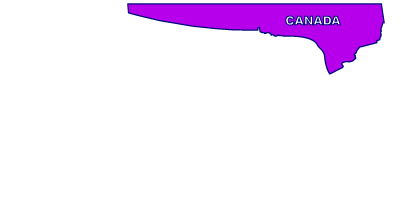Best Christian College for Chemistry
The Christian colleges included here offer your major of interest. You may read through the articles to learn more about your major of interest. You may also select the schools you'd like information from and click "Continue" under the list of schools. The Christian Connector and those schools that you request information from will receive the information you provide on the form so they can respond and meet your information request. Once the form is completed, you'll automatically be entered to win one of four $500 Visa Gift Cards.
Click on the map below to bring schools in the selected region to the top of the list:









Articles on Chemistry:
Degree in Chemistry at Christian Colleges
Article by Rachelle Wiggins
“I stand in awe of God because of what he has done through his creation. Only a rookie who knows nothing about science would say science takes away from faith. If you really study science, it will bring you closer to God.” ~James M. Tour; organic chemist
Chemistry, at its core, is the study of matter. It uses math, theory and experimentation to understand how every day materials are composed and structured. Chemistry has been called “the central science” because it interconnects the physical, life and applied sciences. Chemistry professionals use their knowledge of substances to improve and develop new materials or material uses. To choose a major in chemistry is to begin down any number of career paths, from medicine to manufacturing to research to education. How important and helpful to gain an education in this field from a Christian perspective, where our all-powerful God receives the credit due Him for creating, sustaining and holding all things together by His powerful word!
Those who get excited about the periodic table of elements or reading ingredients on a manufacturing label may end up as chemistry majors. These individuals tend to have an innate mathematical wiring and enjoy conducting scientific experiments. Chemistry majors are inquisitive, with a passion for discovery and understanding how things work. They are not afraid of deep analyzation and asking the tough questions necessary for honest scientific thought. Beyond this, a chemistry major needs other important skills and traits as well. For example, it is helpful to have critical thinking skills, a sharp memory and a detail-oriented mind. A chemistry degree requires plenty of research, experimentation, focused report writing, and careful lab work. Though it is true that chemistry majors must sometimes work independently, you will also encounter plenty of collaborative opportunities (such as working with lab partners, and team research projects) where strong communication and people skills are a must.
Biology, physics and upper level math classes are par for the course in this rigorous major. In addition, you can expect lots of hands-on learning as you create chemical reactions and identity unknown compounds in the lab. Depending upon your program, it’s possible you may specialize in an area that interests you such as environmental, analytic, polymer or physical chemistry. Electives in this major tend to be vast and may include areas like geology, meteorology and paleontogy. Standard classes you may take include:
- Organic and inorganic chemistry
- Biochemistry
- Computer science
- Engineering physics
Unlike some majors, a chemistry graduate does not follow a well-defined career path. Rather, this major offers a strong foundation of knowledge and a plethora of transferrable skills useful in many work settings. Many chemistry majors go on for graduate level learning in areas such as medicine, pharmacology, dental, veterinary studies or law or to pursue careers in research or other specialized fields of such as chemical engineering. However, there’s a wide range of career outcomes for those who delay or forgo a master’s degree. Some examples are:
- Science technician (in a medical, vet, pharmacy, forensics or chemistry lab)
- Research assistant
- Environmental specialist
- Postsecondary biology teacher (requires additional teaching certificate)
- Pharmaceutical sales representative
- Manufacturing/quality control specialist
Someday we will all give an account to God for what we did with what He gave us. If He has gifted you with an analytical, scientific mind then a major in chemistry may be the perfect fit for you!
A Future in Chemistry
By Amber Gragert
In the 1600's a brilliant man by the name of Johann Joachim Becher said of his profession, "The chemists are a strange class of mortals, impelled by an almost insane impulse to seek their pleasures amid smoke and vapor, soot and flame, poisons and poverty; yet among all these evils I seem to live so sweetly that may I die if I were to change places with the Persian king.”
If you too have an affinity for the sciences and like to find answers to fundamental questions like, “How?” and “Why?” and just need to know bare bone basics of how substances are made, then chemistry is a major well suited for you.
According to the Miriam-Webster dictionary, chemistry is “a science that deals with the structure and properties of substances and with the changes they go through: the structure and properties of a substance: the way a substance changes and reacts with other substances.” As a chemistry major, you will study topics like the chemical make up for life and how chemicals affect and/or create problems in the environment. You will look at an object at an atomic level to find out what it is made of and how it behaves.
Chemistry is at the core of your studies so you will study compounds under a microscope, write lab reports and spend ample time in a laboratory creating chemical reactions. This will all be accomplished through courses like general chemistry and organic chemistry in addition to other courses like biology, mathematics and physics.
With a chemistry major, you could work towards a career in chemistry, of course, but a large number of students also use this major as they pursue the medical and dental fields. Lab time as a chemistry major sharpens and showcases your ability to work with your hands and your quick and creative problem-solving skills – all of which medical communities find of great value and importance.
Some key traits chemists tend to have in common are analytical thinking and abstract thought processes but also find logical conclusions and solutions. They are also task oriented, have a desire for knowledge, and have a curious and inquisitive mind.
Career examples:
• Analytical Chemist
• Applied Research
• Product Developer
• Chemical Engineer
• Healthcare Scientist
• Biochemistry
• Forensic Scientist
• Formulation Chemist
• Laboratory Technician
• Pharmacologist
• Registered Nurse
• Social Impact Activist
• Toxicologist